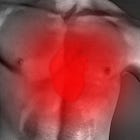This is the “braniac’s” version of how dopamine and [nor]adrenaline interact: i.e. for those who like detailed mechanisms and the role of the brain in chronic conditions. It should be relevant not only to conditions like Parkinson’s, but also other conditions for which “too little dopamine” [but really, too much noradrenaline] has been implicated, such as ADHD, Fibromyalgia, and Ehlers-Danlos Syndrome.
[Note: I have not included reference sources here, because in the age of AI, you can just ask Grok or similar about any of the points, e.g. “provide sources for the concept that the Locus Coeruleus influences the Substantia Nigra” and get yourself an instant literature review, along with handy summaries of each article].
The Locus Coeruleus (LC) is the main part of the brain where noradrenaline [the stress related neurotransmitter] is produced and released.
The LC exerts a significant influence over the substantia nigra (SN), the major dopamine producing and releasing area of the brain implicated in Parkinson's diagnoses.
The LC has nerve fibers extending into the SN, with the nerve endings close to dopamine neurons. When the LC neurons fire, they release noradrenaline from the nerve ending into the small gap from the SN neurons, the noradrenaline is then picked up by adrenergic receptors on the surface on the SN dopamine neurons.
"Think of LC nerve fibers as pipelines pumping norepinephrine to the SN’s doorstep, where it knocks on receptor doors to influence dopamine neurons."]
The LC’s influence depends on its firing mode. "Phasic Bursts" triggered by novelty, acute stress, or excitement - these release sharp pulses of noradrenaline to the SN, temporarily boosting dopamine neuron activity; "Tonic Activity" - a steady baseline release modulates SN dopamine levels over time, tied to arousal levels.
Chronic stress overactivates the LC, pushing it from adaptive phasic bursts to maladaptive tonic firing, depleting noradrenaline, desensitizing receptors, and causing structural damage. Early on, the high levels of tonic firing due to chronic stress is a survival boost; but over time, it’s a burnout trap.
"Initially, LC hyperactivity helps cope with stress by mobilizing resources—heart rate up, attention heightened. This is adaptive short-term. Over weeks to months, the system buckles... LC neurons becoming unresponsive after prolonged overuse, a kind of burnout that mimics depression-like states with low norepinephrine output."
6. The effects of chronic stress on the LC ripple through to the dopamine-rich SN due to their interconnected relationship. When chronic stress dysregulates the LC, it disrupts the noradrenergic support the SN relies on, impacting dopamine neuron function, survival, and motor/cognitive outcomes. Early on, LC hyperactivity overdrives the SN; later, LC burnout leaves the SN and dopamine function vulnerable. This leads to motor deficits (e.g., sluggish movement), cognitive/mood issues.
"The LC-SN partnership crumbles under stress, with the SN paying a heavy price as its noradrenergic coach falters."
7. The chronic stress-damaged LC can be repaired — firing patterns and neurotransmitter levels can normalize, dendrites can regrow, and surviving neurons can adapt — if stress stops and supportive interventions & lifestyle changes kick in. For the SN, a recovering LC means better dopamine support.
The HOPE-shortcut;s “Stress Test” is a good starting point for understanding your stress type, and knowing about your potential susceptibility to chronic stress symptoms.







Is Parkinson's higher among those who are white collar/technical people?
I think the left brain bias of society, particularly in academic fields might play a factor in this disregulation.
https://unherd.com/2023/05/left-brain-thinking-will-destroy-civilisation/
Obviously there are many more factors like aluminum and other toxic junk that the white coats tell us to take.
https://robc137.substack.com/p/allergic-to-bullshit
Interviews with People with Parkinson's is an amazing book, and the Hope Shortcut is only a shortcut for those who have the right mindset! Bohdanna also read the book Gary, and we gave it to our father-in-law who has PD...we'll see what he thinks...